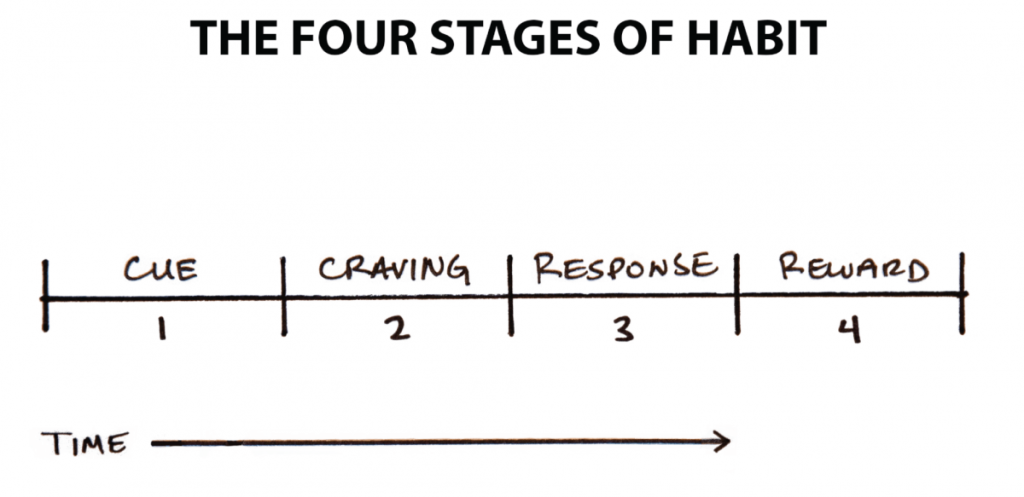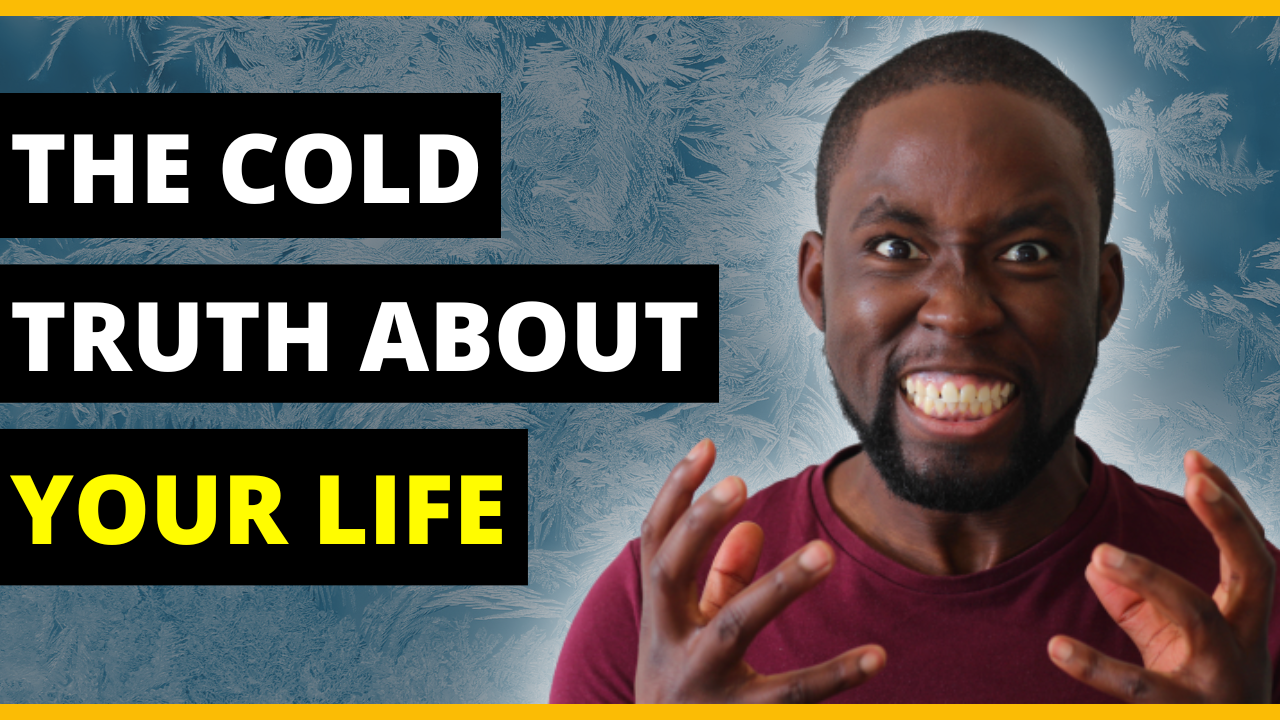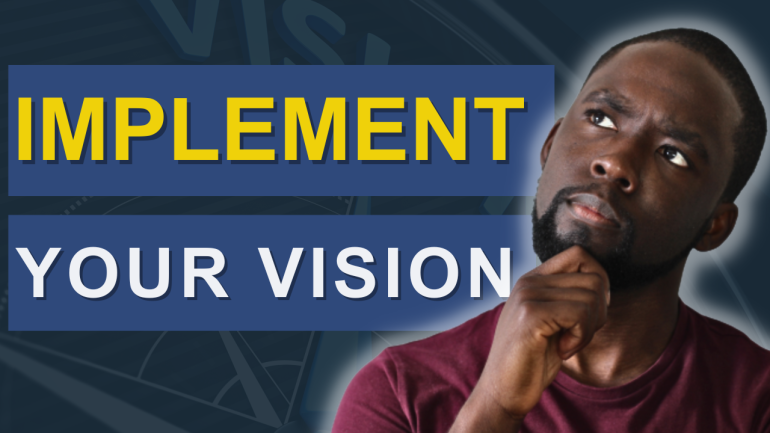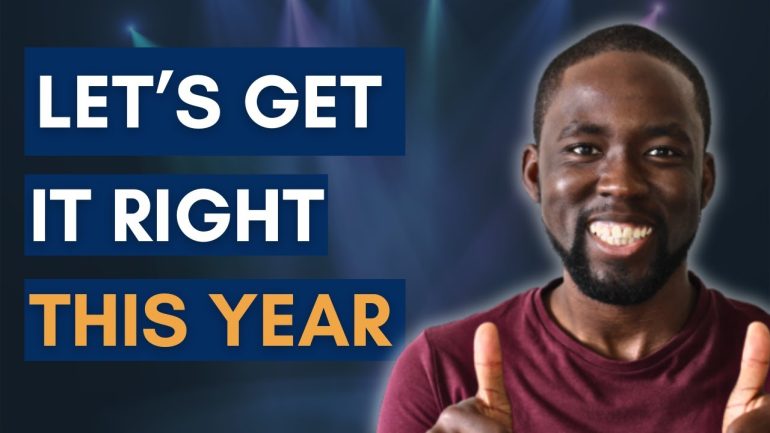21 Lessons for Personal Growth in 2023
My birthday was a couple of days ago, and usually I spend some time reflecting on key lessons I have learned.
Before it became fashionable, my birthday has always been the start of my personal new year.
With that comes reflection, review and restoration. It enables me to crystallize values that are important to me.
This process matters to me because it helps ground my future steps, aligning me to my core vision.
Without a set of values, it becomes hard to make decisions. Hopefully, this inspires you to develop your own.
Let’s get started!
Values determine your Destination
I’m going to highlight a list of things I have taken time to ponder on, to possibly help you navigate this life.
If you can, take the time to really meditate on what is being said.
Without further ado, let’s get into it.
1. Life is fair ⚖
This is difficult to battle with, but who are we to determine if life is fair or not? Life is life. We were brought into it.
With that in mind, objectivity enables one to maturely navigate their experiences. In psychology, it is known as flexing your ‘psychological muscle’.
This is where you transition from dancing through life, to seeing it for what it is. In essence, helping you make better decisions.
2. Who you know is more celebrated than what you know ?
People usually don’t like a know-it-all. But they like to be associated with the “somebody’s” of the world. This is linked to our internal desire to seek status.
Unfortunately this can create a lot of fluff and inflated air, embedding a false sense of narrative. Striking the balance between the two is important.
Provide value through what you know, and connect with people who help you make more of an impact.
3. Routines are better than habits ??♂️
Atomic habits by James Clear is one of the most celebrated books known to many of us. However, I’ve stopped focusing on habits.
In the habit loop it states that habit formation consists of:
- Cues
- Craving
- Response
- Rewards

The craving and response section has been adapted from Charles Duhigg’s The Power of Habit.
As much as the atomic habits’ habit loop looks sexy, it’s not reliable enough for me.
I’d rather know I am consciously focusing on a routine, than aiming to build a habit.
Habit or not, it’s going to get done!
Focusing on habits creates expectations.
Therefore, it becomes outputs based rather than value based.
Value-based goals are far more powerful than just output-based goals.
Striking a balance between the two is best.
4. Work in days and weeks ?
This mindset shift has been transformational. Some of you know that I developed a life navigation system on Notion.
It helps funnel my focus day to day, and week to week.
This creates less pressure on me and allows me to relax, whilst performing to a high level.
The main change is that I no longer focus on a big long term goal.
They still exist, but are not a focus.
I am less future focused all the time, and more present.
5. Greatness is born out of intelligent consistency ??♂️
You can still be a consistent fool. We hear you need to be consistent all the time. But it feels like an empty statement.
Since I wrote my first book, Understand Reach Expand, I coined the term commit to a cause.
Essentially commitment is saying I will do whatever it takes. It is describing your level of discipline.
A cause relates to something that drives you. This is centred on passion, inquisition or experience.
These 3 factors create an intelligence that enables you to become efficient at execution.
However, we may be slow to accept this fact.
When you become self-aware of your results and factor in review, you create intelligent consistency.
6. Scientific consistency beats random expression in the long run ???
Expression is important. But it is not our be all end all. Sometimes we talk about it like it’s enough.
A flower is an expression of nature’s beauty, but even beauty has structure.
The greatest artists of all time honed their expression into a science.
Do not get fooled by people who make you believe it is all just expression.
Some people can get away with it, but for most it never lasts.
Create a framework, system or repeatable process that allows you to still express yourself authentically, even on the tough days.
7. People make the difference whether you like it or not ??
People shape your environment, and environment shapes your consistency.
When you learn this, you’ll make some adjustments.
This is not a message to cut people off.
Rather this is a message to be more observant. Who gives you more energy, and who steals energy from you?
If it is better to be by yourself, do it.
I’ve learned the hard way that solitude gets me results.
Having people is great, but it’s also a distraction over what you truly should prioritise.
This of course is for the acquired mins.
This is also why we are seeing a lot of introverted solopreneurs break £1 million in revenue.
8. Minimise routine disruption at all costs ?
Routines are underrated.
Everyone has one whether they agree or not.
Some of you mistakenly call some of them habits.
Routines become powerful when you are conscious of them.
The science shows that when you are deliberate about your actions, you tend to get better results.
It also says that your environment is most crucial to these results.
However, life is life… Sometimes things get in the way.
When these things happen, you need to find ways to get back on track.
The best way to tackle this is to build with having future issues in mind.
This can apply to:
- Completing work ahead of time
- Building an emergency fund
- Batch Content creation
- Planning your meals and healthy eating
- Planning Workouts
- Scheduling date nights in advance
When you batch or schedule in advance, and develop mitigating actions on risks, you win.
There is evidence that shows that organisations that prepared for economic downturn were more prosperous at the end of it.
This was clearly seen during the pandemic years.
Don’t be slow to react.
9. Experiments breed experience and experience beats confidence ?
People say that I am apparently confident.
I don’t know what that means, as it is not something I am conscious of.
Reflecting upon this, I do, however, like to experiment.
My curiosity leads me to do things that some people are not “confident” doing.
Maybe it is my perspective on life, but curiosity leads me to do things that seem “confident”.
Approaching life this way feels like less pressure, and allows me to go with the flow a little bit.
Is it better to give a speech based on something you have just learned, or based on your experiences?
It’s the last one because there is less thinking involved. You just do it.
Learn to link your experiences into your work, to help you beat imposter syndrome.
I know it doesn’t always work this way, but it eventually will.
10. Believe in more ??
I thank my Mother and Sister for instilling this in me.
Belief is at the cornerstone of all our desires.
In reality, it is the seed that plants the oak tree.
Tony Robbins used to speak about this in his ‘Success Cycle’.

It highlights how belief affects action, action breeds results, results instil potential, and potential influences your beliefs.
Beliefs form what is known as intrapsychic forces that make up your sense of identity.
When we add grounding to our beliefs based on values, we are more resilient.
We become more focused.
We are able to dream, and therefore dare more.
Start with belief, and don’t be afraid to believe in more.
11. Stop waiting for people to rate you ❌
If you rate yourself, that’s all that truly matters.
People are judgemental.
People have preconceived ideas.
You cannot be the thought-police, it is tiring.
Police your own thoughts and channel them into something constructive.
When you start doing this, your actions become conducive to a healthy state of authenticity.
People start to feel this energy and vibe.
This draws people to you as you express this essence and nature.
And this is how you begin to form your people.
Focus on yourself, and the appropriate people will come.
12. People lie ?
I’m sure you have heard that people like stories.
It’s also true that people love to lie.
There is a book called the lies we tell ourselves, and it breaks down how we do it.
It’s quite worrying how and why we lie.
But get used to it. In fact, expect it.
This is less about trust and more about how to deal with disappointment.
If you recognise it as part of the human condition, it’s less of a tragedy.
Behaviour is how you can discern lies.
Develop your emotional intelligence skills to decipher facts from foes.
13. Self-preservation drives behaviour ?
I’m not sure if true altruism exists.
Even to some small level people like helping people.
This, like for many, is driven by a reward system.
Very similar to what we saw with the habit loop earlier.
Which means people are driven by what they perceive makes them happy.
Another way to put it is, people will do what they need to in order to survive.
This may be subtle, or conspicuous by nature.
This is determined by a person’s level of self-monitoring.
The point being made here is that you can judge character based on how quickly they jump into expressive self-preservation mode.
When you learn this simple, yet subtle fact about the human condition, things become clearer, and potentially easier to navigate.
14. There are no real rules, there are just games we play ?
Rules are how we socialise living with expectation and a sense of utilitarian peace.
These are constructed and conservative ideals that shape behaviour.
But without these rules, who would we be?
This is not a call for illegal activity but to think outside the box.
Why does there have to be a box in the first place?
The box is there to help us manage and structure expectation, but it doesn’t define life.
Creative and critical thinking, when done in the right doses can help you succeed.
This is because real success is not normal.
You have to be abnormal to do anything great.
Think less about the rules, and more about how it can be done.
There is one exception to this rule:
Harm no one, including yourself, in the process…
…Otherwise, there’ll be no more games to play.
15. There is always someone doing less than you and making more money ?
Contracting taught me this.
Although there are nuances to these career paths this statement is a matter of fact.
This difference lies in risk.
The risk is based on market behaviour and perception.
The market values “risky” individuals over the idea of “safe”.
This is because it usually comes with experience that crystallise in perceived value.
You can learn more about this here.
16. Good Communication is an under utilised skill ?
A lot of people do not know how to communicate well.
This is because they have poor emotional management.
This can be blamed on our past etc. but billions of adults have the same excuse.
This stems from a lack of self-awareness and self-management.
Learn the emotional intelligence model by Daniel Goleman, and apply interventions to develop your skills.
Learn about emotional agility, self-moniroting and emotional granularity and apply the skills to your life.
Practice public speaking, record yourself and look for ways to improve.
Write in your journal, Twitter or LinkedIn daily.
Answer deep questions and learn more about psychology and your own.
Go into monk mode and get a healthy body.
Get a therapist or coach, and do some inner work.
All these things will help you become a much better communicator.
There is no excuse for bad communication (in-person). Get better.
17. Clarify the value of your friends ?
The book The Psychology of Friendship states that friends need to have value in order to be friends.
This is of a non-romantic nature, where the value is recognised.
Are your friends:
- Emotionally intelligent
- Ambitious
- Helpful
- Holistic
- Encouraging
- Grounding
- Social
- Sensible
If they don’t fit any of these then I’m sorry.
If they do, you then need to see what you value most.
Your life will show you whether what you chose is conducive to your selection.
People define your environment. Remember this!
18. Most people are logical ?
There are some really rude and selfish people in this world.
We can’t save everyone. But everyone has their own reasons.
People usually follow a logic, or internal code.
Your logic may not match theirs, but it is a code they follow nonetheless.
Realising this you can show more empathy towards people as they express themselves.
This links back to this idea of emotional maturity.
Make peace with people’s logic and move on.
After all, logic is not necessarily right, but a pattern we ascribe to based on our perspective.
19. Most people are avoiding the truth ?
If you want to hurt someone, tell them the truth.
In the same instance, if you want to help someone tell them the truth.
The truth does hurt, but it can depend on how it is delivered.
Run towards the truth and don’t avoid it.
If it is difficult, get someone to help you run towards it.
This is why having the right friends is important.
They can waste your time, or enhance your life.
The truth can set you free in the sense that you have nothing holding you back.
When you see things for what they are, life is less heavy.
20. Life is health ?
We are dying every day.
There is nothing we can do about it.
We can slow it down if probabilistically fewer things interfere with our inevitable death.
Things really start to accelerate in your 30s.
Studies show that neurodegenerative diseases start to form in your 30s… Initially undetected.
This is due to “Type 3 diabetes” and induced through poor diet and exercise.
The simple measure here is:
Eat well. Sleep well. Move well.
21. You have two voices in your head ?? ??
We have a rational voice which is like an adult voice.
This is the voice of reason. It is mad quiet at times but helps us think, plan and strategise.
We also have a child voice. It is passionate, immature and a fat cry baby.
It plays on ego, pride and raw emotion.
One should not be louder than the other.
However, the child is usually the loudest.
We need the child to help us achieve and succeed, but the adult is needed to channel this energy.
The child is good at “playing” the adult, but it can never be one.
This adult was developed from our significant mentors i.e. parents, siblings, teachers etc.
Learn the difference between the two and manage them well through interventions mentioned before.
Read the following book to fully absorb this information.
The key takeaways are:
There are none. Read the points again if there is anything that stood out. It would also be great to know what your thoughts are on these 21 lessons. Message me and let me know.
I can help you in some of the following ways:
- Secure the Job: The step-by-step course that unveils systems, strategies and success when it comes to progressing your job and applying for new roles
- The Independent Consultant UK: A guide to becoming a contractor in the UK. This is a step-by-step walkthrough of my experiences, hosting exclusive information to help you transition into the space of contracting.
- Book a call: Let’s have a chat to focus on your life areas and where you can the biggest impact. If it makes sense, we can progress towards procuring coaching or mentoring.







